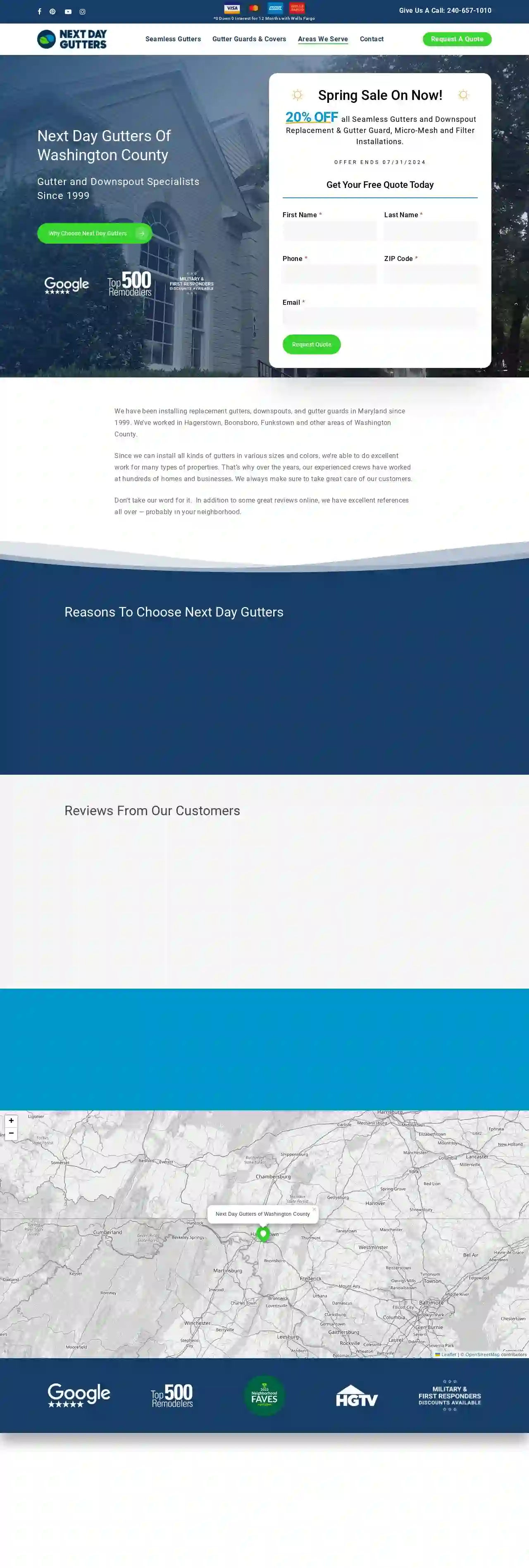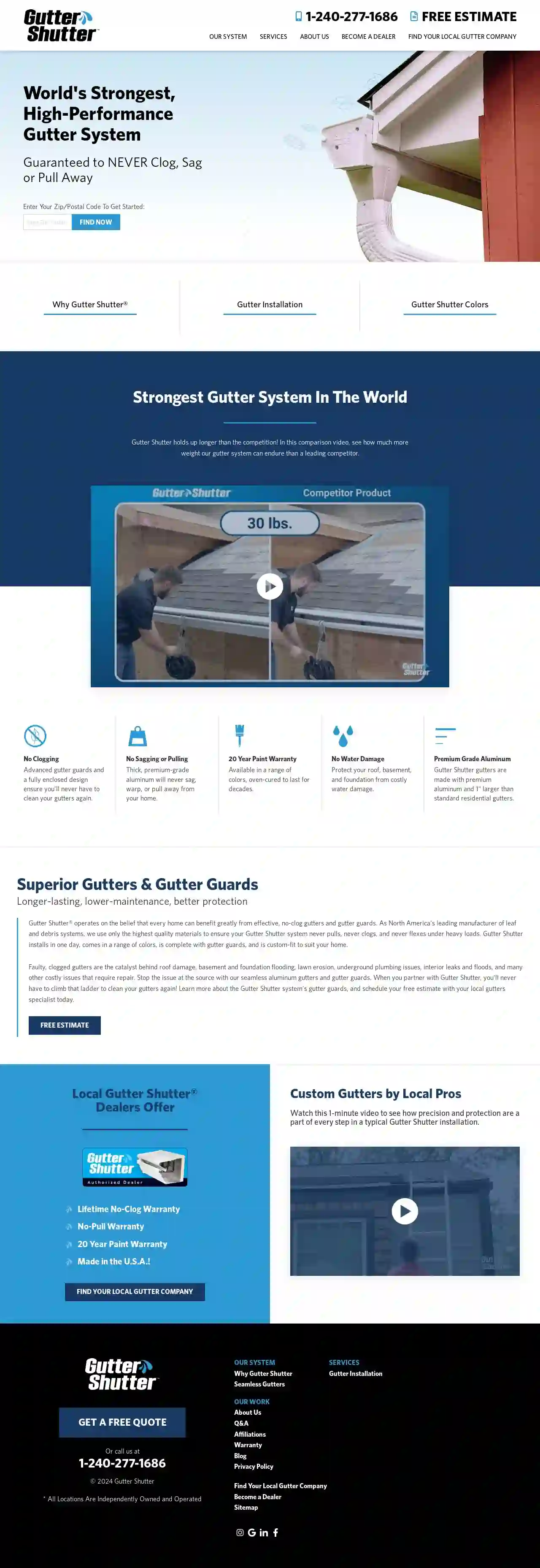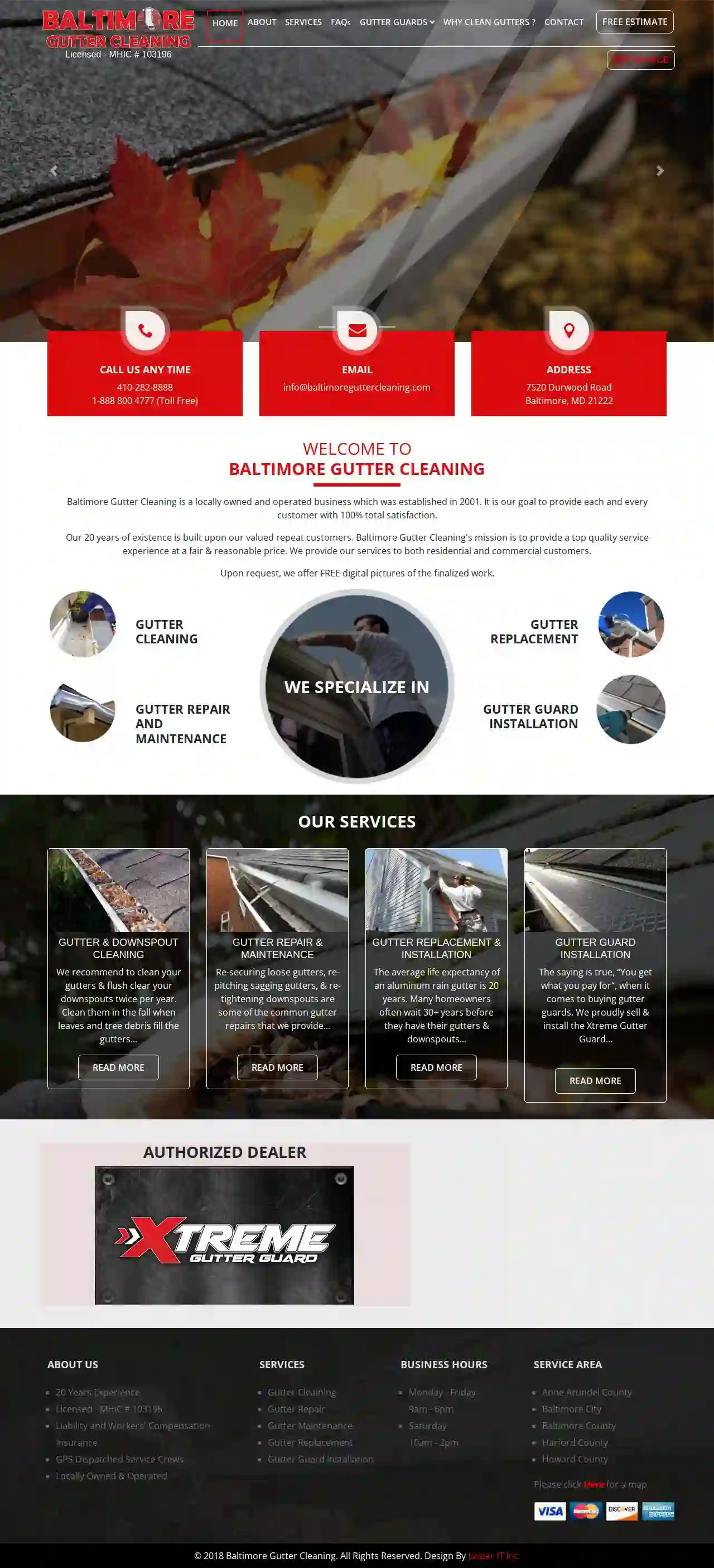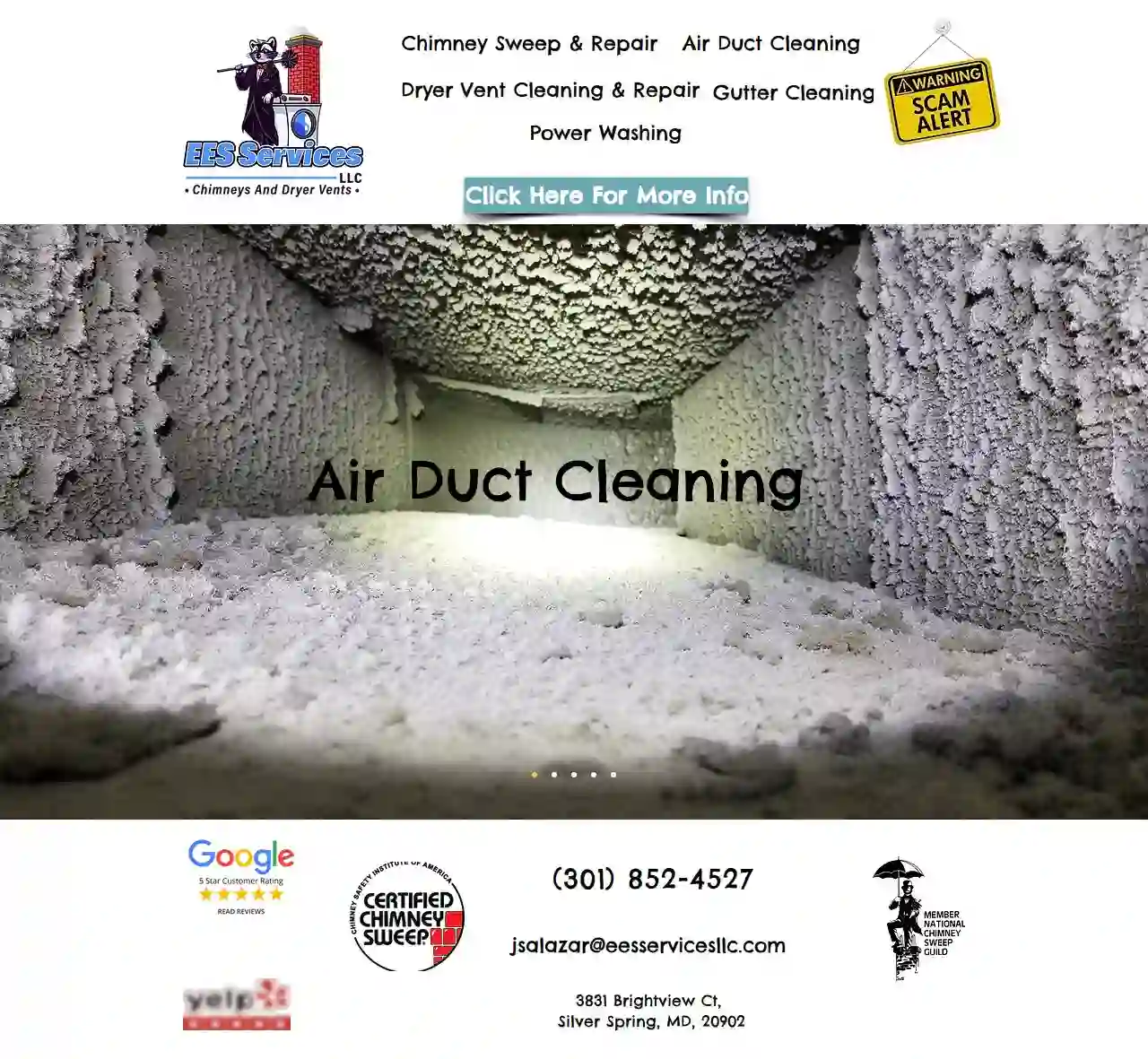Gutter Cleaning Redland
Best Gutter Cleaning in Redland
Receive up to 3 Gutter Cleaning quotes for your project today! Compare profiles, reviews, accreditations, portfolio, etc... and choose the best deal.

Red Door Pro Wash
4.9489 reviews123 Main St, Anytown, 00000, USAt Red Door Pro Wash, we pride ourselves on providing top-notch power washing and soft washing services to homeowners and businesses in the area. With years of experience and a team of highly trained professionals, we're dedicated to delivering exceptional results and unparalleled customer service. Our services include power washing, soft washing, house washing, roof cleaning, gutter cleaning, window cleaning, dryer vent cleaning, paver sealing, deck and fence cleaning, rust removal, and gutter guard installation. We're committed to using only the latest equipment and eco-friendly cleaning solutions to ensure a safe and effective cleaning experience. Contact us today to schedule your appointment and experience the Red Door Pro Wash difference!
- Services
- Why Us?
- Accreditations
- Gallery
Get Quote
Winston's Gutter Services
4.2108 reviewsBaltimore, USWinston's Gutter Service has become a part of the growing Ned's Home family. We are thrilled to expand our service offerings with this top-notch company and continue to deliver on our mission to provide leading gutter cleaning and installation services to our valued customers. The benefits of this acquisition include: Ned Stevens's A+ Rating With the Better Business Bureau, Expanded Gutter Installation, Replacement, Repair, and Cleaning Services, Ned Stevens's Angie's List Honor Roll Award, Access to Gutter Cleaning Professionals Who are a Part of the National Rain Gutters Contractor Association, Access to More Exterior Home Maintenance Professionals. We Are Committed to Offering Convenient Gutter Cleaning Services for Homes in Maryland. Our Mission: Due to our commitment to delivering nothing but top-quality services, we have been able to expand our services into 18 states. All of our jobs are fully guaranteed, and we carry workers' compensation and liability insurance to protect our customers and employees. When you choose Ned's Home, you can trust that you are receiving professional, nationally recognized gutter services.
- Services
- Why Us?
- Gallery
Get Quote
Next Day Gutters of Hagerstown
10000, Hagerstown, 21740, USNext Day Gutters of Washington County is a family owned and operated business serving the area since 1999. We specialize in installing replacement gutters, downspouts, and gutter guards in Hagerstown, Boonsboro, Funkstown and other areas of Washington County. We offer a variety of gutter styles in various sizes and colors to meet your needs. Our high-quality gutter products are proven and we have installed over 15,980 seamless gutter systems on homes and businesses since 1999. We protect your home from rain, snow, sleet, and clogged gutter systems with Next Day Gutters’ complete line of installed residential seamless gutter and roofing products. You won’t have to worry about who is working on your home. Our gutter replacement installers are experienced, fully trained, and taken care of when working on your property. You’ll also love our thorough gutter cleaning and repair crews.
- Services
- Why Us?
- Gallery
Get Quote
Mack's Home Services, LLC
4.637 reviewsP. O. Box 84, Severn, 21144, USMack's Home Services, LLC is a family-owned and operated business committed to excellence for over 25 years. We ensure that each customer, residential and commercial, receives the best service, making homes and businesses safer and healthier places. We've been in business for over 25 years and are proud to say that our customers are always pleased. Mack's Home Services, LLC's number one job is to provide quality and affordable services. But, we also work hard to secure your family and employees' environmental needs of Health, Safety, and Damage Protection. We also offer all-natural products to protect children, pregnant women, and pets. Mack’s Home Services, LLC provides the MACKSimum cleaning services in MD, DC, VA, PA, and DE! We are an accredited member of the Better Business Bureau with an A+ Ranking.
- Services
- Why Us?
- Accreditations
- Our Team
- Testimonials
- Gallery
Get Quote
Gutter Shutter of Central Maryland
59 reviewsBaltimore, USGutter Shutter® is a leading manufacturer of leaf and debris systems, specializing in high-performance gutter systems designed to never clog, sag, or pull away. We believe every home can benefit from effective, no-clog gutters and gutter guards. Our gutters are made with premium aluminum, are 1" larger than standard residential gutters, and come with advanced gutter guards and a fully enclosed design for maximum protection. Gutter Shutter installs in one day, is available in a range of colors, and is custom-fit to suit your home. Partner with Gutter Shutter to protect your roof, basement, and foundation from costly water damage.
- Services
- Why Us?
- Gallery
Get Quote
Baltimore Gutter Cleaning
5332 reviewsBaltimore, MD, 7520 Durwood Road, 21222, USBaltimore Gutter Cleaning is a locally owned and operated business which was established in 2001. It is our goal to provide each and every customer with 100% total satisfaction. Our 20 years of existence is built upon our valued repeat customers. Baltimore Gutter Cleaning's mission is to provide a top quality service experience at a fair & reasonable price. We provide our services to both residential and commercial customers. Upon request, we offer FREE digital pictures of the finalized work. We are a proud Maryland Home Improvement Commission Licensed Company. Our MHIC # is 103196. All of our work is fully guaranteed and we carry workers compensation as well as proper liability insurance. We are insured to do work on ladders at your roofline, which most "fly by night" companies are not insured to do. A landscaper is insured to cut your grass—what happens if that same landscaper falls from a ladder and is not insured to clean gutters? Our insurance not only protects us, it also protects you. With Baltimore Gutter Cleaning, you do not need to be home. We come out, we do a neat and thorough job, and we leave the invoice in your door indicating that the job was completed. It's really that simple. Depending on the season and weather, it is very likely we are able to provide service to your home or business the next business day! We are always open to your tips and suggestions for improvement. We want your experience to be enjoyable and easy! At Baltimore Gutter Cleaning, we are open six days a week. We are here for you from Monday through Friday 8:00 a.m. to 8:00 p.m. and Saturday from 10:00 a.m. to 4:00 p.m.
- Services
- Why Us?
- Accreditations
- Gallery
Get Quote
GUTTERDOGS Affordable Soft Power Washing & Safe Roof Cleaning
4.9322 reviewsBaltimore, USGUTTERDOGS Affordable Soft Power Washing & Safe Roof Cleaning Maryland FAST Cleaning Estimate For all of your exterior cleaning needs, such as safe no pressure roof cleaning, low pressure house soft washing, concrete cleaning, gutter cleaning, deck and fence washing, EIFIS Stucco soft power washing and more. Serving Maryland and the surrounding area. We accept Cash, Check, Credit Card, and for your Convenience PayPal, Cash App, and Zelle. We do not share or sell your personal info. This is a safe secured website and we will not spam you.
- Services
- Why Us?
- Gallery
Get Quote
Ragoba Enterprises LLC
51 reviews1320 Jay Dr., Hagerstown, 21740, USRagoba Enterprises LLC is a professional gutter repair and installation company serving Maryland. We are dedicated to providing high-quality workmanship and superior materials at competitive prices. Our mission is to install, clean, and repair rain gutters with a professional approach and attention to detail. We understand that each customer's property has unique needs, and our experienced professionals are committed to providing the best possible care for your home. We pride ourselves on prompt communication and responsiveness to your specific requests. With over 10 years of experience, we have a proven track record of satisfied customers. Our team utilizes professional equipment and adheres to the highest industry standards. We are fully insured, giving you peace of mind knowing your property is in capable hands. Whether you need a new gutter installation, regular cleaning, or expert repairs, Ragoba Enterprises LLC is your trusted partner. Contact us today for a free consultation and let us help you protect your home from water damage.
- Services
- Why Us?
- Testimonials
- Gallery
Get Quote
The Gutter Guys
4.8322 reviewsBaltimore, USThe Gutter Guys are a full service Maryland gutter systems company offering new seamless gutter installation, GutterGard gutter protection system, gutter cleaning, and repairs. We're centrally located in Baltimore to serve our customers' needs. Here is a full list of the areas we service: Baltimore MD: Towson, Lutherville Timonium, Parkville, Pikesville, Owings Mills, Reisterstown, Baltimore, Monkton, Catonsville, Cockeyville, Gwynn Oak, Perry Hall... and more. We provide professional services to your Home or Business, including Gutter Cleaned & Flushed, Rain Gutter Repairs, Down Spout Relocation, Gutter & Down Spout Inspection, Gutter Guard Inspection, Removal of Gutter Filters, and Removal of Gutter Screens.
- Services
- Why Us?
- Gallery
Get Quote
EES Services LLC
5297 reviews3831 Brightview Ct, Silver Spring, 20902, USEE Services LLC is your one-stop shop for all your home maintenance needs. We specialize in chimney sweep and repair, air duct cleaning, dryer vent cleaning and repair, gutter cleaning, and power washing. Our team of experienced professionals is dedicated to providing you with high-quality service at competitive prices. We are fully licensed and insured, so you can rest assured that your home is in good hands. Contact us today for a free estimate!
- Services
- Why Us?
- Gallery
Get Quote
Over 60,241+ Janitorial Companies on our platform
Our janitorial service providers operate in Redland & beyond!
CleaningMatch has curated and vetted the Best Janitorial Contractors near Redland. Find a trustworthy pro today.
Frequently Asked Questions About Gutter Cleaning
- Safety: Cleaning gutters involves working at heights, which can be dangerous. Ensure you have a stable ladder and someone to spot you.
- Equipment: You'll need a ladder, gloves, a bucket, a gutter scoop, and possibly a hose or pressure washer.
- Time and Effort: Gutter cleaning can be time-consuming and physically demanding, especially if you have a large house or multiple stories.
- Debris Disposal: You'll need to dispose of the collected debris properly.
- Reduce Gutter Cleaning Frequency: Gutter guards significantly reduce the amount of debris that accumulates in your gutters, reducing the need for frequent cleaning.
- Prevent Clogs and Water Damage: By keeping gutters clear, gutter guards help prevent clogs that can lead to water damage.
- Reduce Pest Infestations: Gutter guards can deter pests like birds, squirrels, and insects from nesting in your gutters.
- Extend Gutter Lifespan: By preventing debris buildup, gutter guards protect your gutters from corrosion and damage, extending their lifespan.
- Hand Cleaning: Involves manually removing debris from gutters using gutter scoops, trowels, and other hand tools. It's effective for removing larger debris but can be time-consuming.
- Blowing: Uses blowers to remove leaves and debris from gutters. Effective for lighter debris but may not remove heavier or compacted materials.
- Vacuuming: Employs specialized gutter vacuums to suck up debris. Effective for removing both dry and wet debris, but may require specialized equipment.
- Pressure Washing: Uses pressure washers to flush out gutters and downspouts. Effective for removing stubborn debris but requires careful handling to avoid damaging gutters.
- Licensing and Insurance: They are licensed, insured, and bonded, providing protection for you and their workers.
- Experience and Expertise: They have a proven track record and experience in gutter cleaning, with trained and knowledgeable professionals.
- Positive Reviews: They have positive online reviews and testimonials from satisfied customers.
- Transparent Pricing: They provide detailed and transparent quotes, outlining all services and costs.
- Professionalism: They are responsive to inquiries, provide clear communication, and arrive on time for appointments.
- Safety Practices: They prioritize safety, using proper equipment and techniques to prevent accidents.
- Guarantees: They offer a satisfaction guarantee or warranty on their work.
Can I clean my own gutters?
DIY Gutter Cleaning Considerations:
If you're comfortable working at heights, have the necessary equipment, and are willing to invest the time and effort, DIY gutter cleaning is an option. However, for safety, convenience, and professional results, hiring a gutter cleaning service is often a better choice.
What are gutter guards, and do I need them?
Benefits of Gutter Guards:
While gutter guards are an effective way to minimize gutter maintenance, they don't eliminate it entirely. Regular inspection and occasional cleaning are still recommended. If you're tired of frequent gutter cleaning or concerned about water damage, gutter guards are a worthwhile investment.
What are the different types of gutter cleaning methods?
The best gutter cleaning method depends on the type of gutters, the amount and type of debris, and the gutter cleaner's preferences. Discuss your options with a professional gutter cleaning service to determine the most suitable method for your needs.
What are some signs of a reputable gutter cleaning company?
By choosing a gutter cleaning company that demonstrates these qualities, you can have confidence in their professionalism and the quality of their services.
Can I clean my own gutters?
DIY Gutter Cleaning Considerations:
- Safety: Cleaning gutters involves working at heights, which can be dangerous. Ensure you have a stable ladder and someone to spot you.
- Equipment: You'll need a ladder, gloves, a bucket, a gutter scoop, and possibly a hose or pressure washer.
- Time and Effort: Gutter cleaning can be time-consuming and physically demanding, especially if you have a large house or multiple stories.
- Debris Disposal: You'll need to dispose of the collected debris properly.
If you're comfortable working at heights, have the necessary equipment, and are willing to invest the time and effort, DIY gutter cleaning is an option. However, for safety, convenience, and professional results, hiring a gutter cleaning service is often a better choice.
What are gutter guards, and do I need them?
Benefits of Gutter Guards:
- Reduce Gutter Cleaning Frequency: Gutter guards significantly reduce the amount of debris that accumulates in your gutters, reducing the need for frequent cleaning.
- Prevent Clogs and Water Damage: By keeping gutters clear, gutter guards help prevent clogs that can lead to water damage.
- Reduce Pest Infestations: Gutter guards can deter pests like birds, squirrels, and insects from nesting in your gutters.
- Extend Gutter Lifespan: By preventing debris buildup, gutter guards protect your gutters from corrosion and damage, extending their lifespan.
While gutter guards are an effective way to minimize gutter maintenance, they don't eliminate it entirely. Regular inspection and occasional cleaning are still recommended. If you're tired of frequent gutter cleaning or concerned about water damage, gutter guards are a worthwhile investment.
What are the different types of gutter cleaning methods?
- Hand Cleaning: Involves manually removing debris from gutters using gutter scoops, trowels, and other hand tools. It's effective for removing larger debris but can be time-consuming.
- Blowing: Uses blowers to remove leaves and debris from gutters. Effective for lighter debris but may not remove heavier or compacted materials.
- Vacuuming: Employs specialized gutter vacuums to suck up debris. Effective for removing both dry and wet debris, but may require specialized equipment.
- Pressure Washing: Uses pressure washers to flush out gutters and downspouts. Effective for removing stubborn debris but requires careful handling to avoid damaging gutters.
The best gutter cleaning method depends on the type of gutters, the amount and type of debris, and the gutter cleaner's preferences. Discuss your options with a professional gutter cleaning service to determine the most suitable method for your needs.
What are some signs of a reputable gutter cleaning company?
- Licensing and Insurance: They are licensed, insured, and bonded, providing protection for you and their workers.
- Experience and Expertise: They have a proven track record and experience in gutter cleaning, with trained and knowledgeable professionals.
- Positive Reviews: They have positive online reviews and testimonials from satisfied customers.
- Transparent Pricing: They provide detailed and transparent quotes, outlining all services and costs.
- Professionalism: They are responsive to inquiries, provide clear communication, and arrive on time for appointments.
- Safety Practices: They prioritize safety, using proper equipment and techniques to prevent accidents.
- Guarantees: They offer a satisfaction guarantee or warranty on their work.
By choosing a gutter cleaning company that demonstrates these qualities, you can have confidence in their professionalism and the quality of their services.